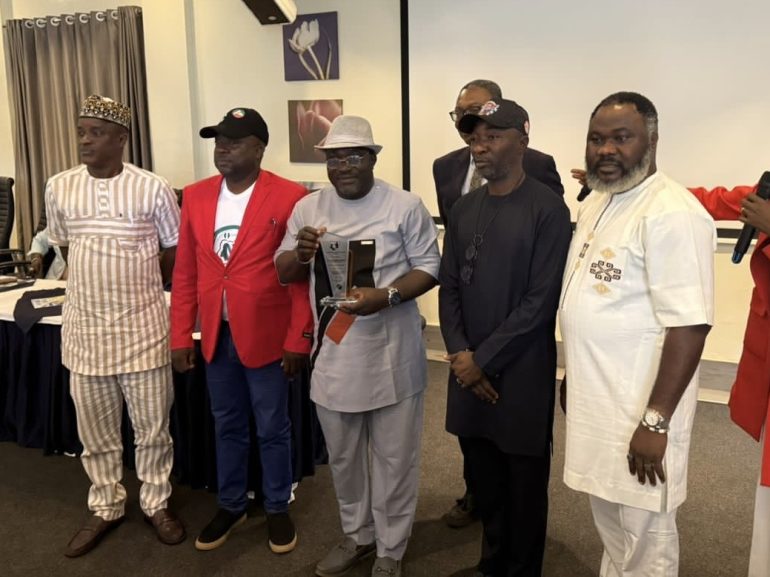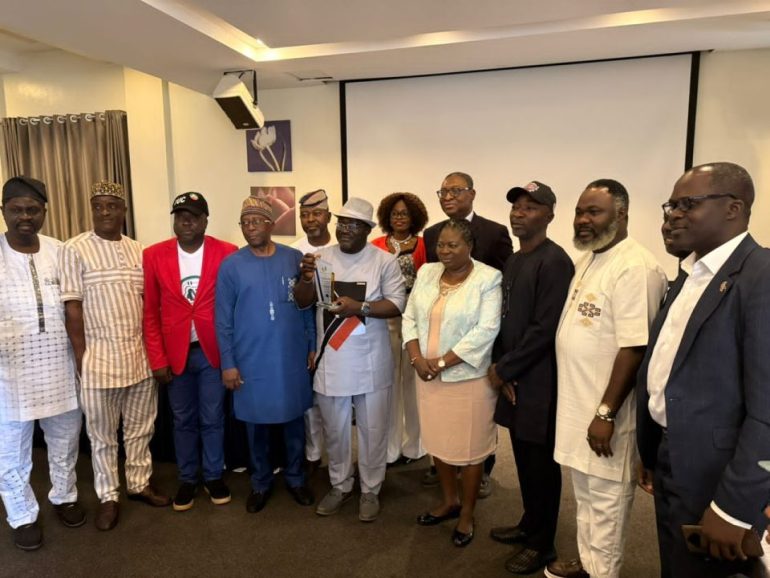Listeners:
Top listeners:
-
play_arrow
104.9FM Best rock music demo
-
play_arrow
Demo Radio Nr.1 For New Music And All The Hits!
-
play_arrow
Demo Radio Techno Top Music Radio
-
 play_arrow
play_arrow
Police Commissioner Launches Weapon and Riot Control Training for FCT Officers Democracy Radio

By Chinedu Echianu
Managing Director and Chief Executive of the Nigeria Social Insurance Trust Fund (NSITF), Barrister Oluwaseun Faleye, has called for a comprehensive overhaul of Nigeria’s social protection system to address emerging risks associated with Artificial Intelligence (AI) and other technological disruptions in the workplace.

Faleye made the call while presenting a paper titled “Social Security and Protection for Nigerian Workers Amid AI Disruption” at the 2025 Labour Writers Association of Nigeria (LAWAN) Workshop held on Friday in Ibadan.
According to him, workplace risks have evolved beyond physical injuries on factory floors to include “technological displacement, income instability, and psychological stress caused by rapid workplace changes.”
“Social Protection must evolve. We must rethink coverage, redefine risk, and reimagine support. In the era of AI, social security must not only compensate—it must empower,” he stated.
While acknowledging AI’s potential to boost innovation and efficiency, Faleye expressed concern over its impact on job security, noting that automation poses a real threat to traditional employment.
“AI promises efficiency and productivity, but it also threatens traditional jobs—from factory floors to administrative offices. The real question should be how to protect displaced workers,” he said.
The NSITF boss identified limited coverage of social protection schemes and the predominance of the informal sector—constituting over 80% of Nigeria’s economy—as key barriers to achieving universal social safety. He also lamented the low awareness of the Employees’ Compensation Scheme (ECS) managed by the NSITF.

However, Faleye highlighted the potential of AI to enhance social protection delivery, saying digital identity systems and predictive analytics could improve efficiency, detect fraud, and anticipate workplace risks before they occur.
He outlined key priorities for achieving robust social protection in Nigeria, including:
Expansion of social security coverage,
Investment in digital literacy and reskilling for workers,
Leveraging AI for efficient social security administration, and
Strengthening collaboration between government, labour unions, and employers.
Faleye also urged journalists to play an active role in raising public awareness about social protection and workers’ rights.
Concluding his presentation, he expressed optimism that with the right policies, adaptation, and investment in worker protection, “the future will be bright and no Nigerian worker will be left behind.”
The annual LAWAN Workshop, themed “Future of Work in the Era of Artificial Intelligence: A Wake-Up Call for Stakeholders,” had representatives from the Nigeria Labour Congress (NLC), Trade Union Congress (TUC), employers of labour, and other stakeholders in attendance.
Written by: Toyeebaht Aremu
Similar posts
Copyright Democracy Radio -2024


